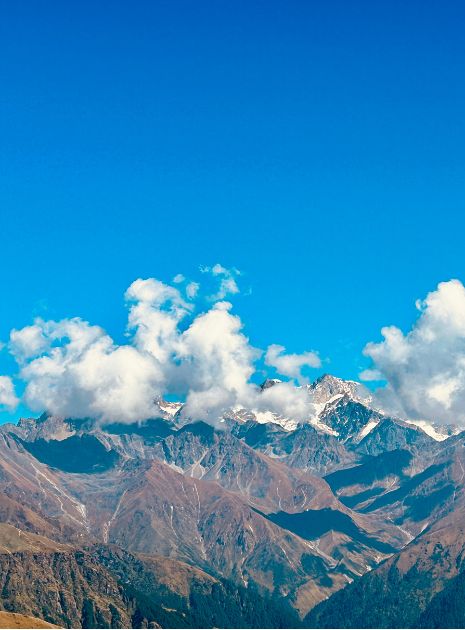Rikhanikhal
Tucked away within the folds of Pauri Garhwal (पौड़ी गढ़वाल), Rikhanikhal (रिखणीखाल) isn’t the sort of place that shouts for interest. It doesn’t have fancy motels, sleek signboards, or selfie spots. But it does have something far rarer: silence, roots, and stories that travel from one generation to the next by word of mouth, not internet searches.
Tucked away within the folds of Pauri Garhwal (पौड़ी गढ़वाल), Rikhanikhal (रिखणीखाल) isn’t the sort of place that shouts for interest. It doesn’t have fancy motels, sleek signboards, or selfie spots. But it does have something far rarer: silence, roots, and stories that travel from one generation to the next by word of mouth, not internet searches.
Created in 2016 as a sub-tehsil, Rikhanikhal is made up of almost a hundred ninety villages. It sits quietly at around 1170 meters above sea level, balanced between mountain ridges and woodland colour.
It’s the type of vicinity that’s easy to overlook on a map, however unforgettable in case you spend time there.
In Rikhanikhal, mornings begin with the clang of metallic buckets near water taps. Smoke rises lightly from chimneys. Fields wait to be watered. And the hills, they just sit there, solid, watching.
People here live close to the land. Farming isn’t a side thing; it’s the mainstay. Wheat, rice, and seasonal greens grow on terraced slopes. The roads are probably bumpy; however, life has its rhythm. There’s no rush.
The conversations are often in Garhwali (गढ़वाली), sometimes in Hindi. If you greet someone, expect a nod and a full smile.
Upon a small rise near the town stands the Chaikhal Devi temple (चैखल देवी मंदिर). It’s quiet, not grand, not crowded, but deeply loved.
There’s a story, told quietly, that adds weight to the place. Long ago, a local ruler worshipped a forest deity called Tadasar (तड़ासर). This deity, it’s said, warned him of trouble almost like a spiritual messenger.
A rival once tried to trick the god with fake offerings. The god didn’t fall for it. And that’s why, till today, locals don’t bring oil or Sal leaves near the temple. It’s not about ritual. It’s about respect. And remembering.
There are no maps for these places. Just ask around, take the left near the small shrine, or follow the boy walking with a sack of fodder. That’s how you find them.
Mountain roads aren’t just for getting somewhere. They hold memories.
The ones around Rikhanikhal twist through dense trees and sunlit clearings. But they’re not always kind. Rain can break them. Fog can hide them. In October 2022, a tragic bus accident in the area reminded everyone just how sharp these turns can be. The grief still echoes.
That’s the thing here. Nature is beautiful, but it demands respect.
Best time to visit? Spring and post-monsoon. When the trees are singing and the roads are kinder.
Because not every place needs development to be meaningful.
Rikhanikhal is one of those places where humans still greet each other via call, in which the land is tilled by hand, and where faith doesn’t want loudspeakers.
It’s where old temples still hold sway, now not due to the fact they’re famous, but due to the fact they’re familiar.
It’s a place where the hills haven’t forgotten their roots, and neither have the humans.
Rikhanikhal isn’t for everyone. But if you’re someone who listens more than you speak, if you find meaning in mud paths and murmured legends, you’ll find something here.
| All Sub Districts | ||
|---|---|---|
| Chakisain | Chaubattakhal | Dhumakot |
| Jakhanikhal | Rikhanikhal | Satpuli |
| Srinagar | Thalisain | Yamkeshwar |

Uttarakhand is not simply another country. People here name it Devbhoomi (देवभूमि), the Land of the Gods. And it feels that way. Rivers begin right he......
See Details